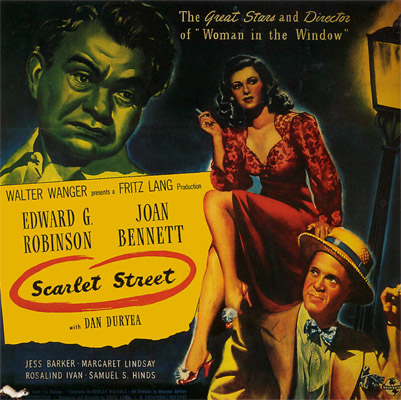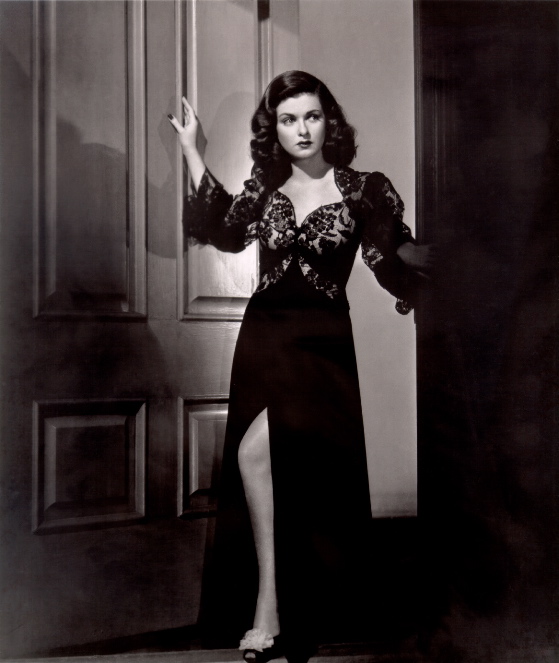
This film by Fritz Lang, from 1945, is essentially domestic noir — the story of an unhappy, ordinary middle-aged married man led into a life of deception and, ultimately, crime by a fetching femme fatale.
It was Lang's favorite among the films he made in America and has a
considerable reputation but I find it curiously dead emotionally and
lacking in real suspense.
The problem is that the fatal femme
is so obviously on the make, so obviously not attracted to the ordinary
man, so cynical and so dumb, that we feel only pity for the guy, a pity
laced with scorn. We can see what attracts Walter to Phyllis in Double Indemnity
— the two are hot together — and even if we suspect that Phyllis
might be using Walter, part of us thinks it might be worth getting used
by a woman like this. This implicates us morally and emotionally
in Walter's transgressions, makes us care about his fate.

It's impossible to care about Chris in Scarlet Street
on that level — watching his life come apart at the seams is like
watching a train wreck from a distance. It's fascinating and
horrifying but we're not involved. In Double Indemnity, like it or not, we're passengers on that trolley hurtling towards the end of the line.
The ending of Scarlet Street
achieves a kind of tragic power, because things go so horribly
wrong, and Chris's moral collapse is so complete and so bleak.
It's not a genuine tragedy, though, because in a genuine tragedy we
could imagine ourselves in Chris's place. In Scarlet Street we're denied that identification, that implication in his fate.

I find Scarlet Street a convincing tragedy.
Chris wants to believe that Kitty loves him and this blinds him to the reality that he is being taken for a chump. His fate is in this sense tragic as it rests on his own delusions. Remember also that unlike Neff in Double Indemnity, Chris is not confident with women and is sexually repressed. Andrew Spicer in Film Noir (2002) describes Chris as a lonely middle-aged 'little-man' in a loveless [and sexless] marriage.
The murder scene is dynamite because of the frustrated passion that explodes when Chris realises the truth.
The tragedy is even greater than Neff's, as Chris's whole being is consumed by guilt and remorse by the film's end, while Neff has no remorse for reeking his revenge on Phyllis.
Finally it is the depth of Robinson's portrayal that underpins the tragic element of the story.
You make the case for the film very eloquently. I also admire Robinson's performance, and I certainly understand his psychology and his personal tragedy — I just can't find a way to identify with him. When a tragic figure falls for the wrong dame, makes a disastrously wrong move, at least a part of you needs to feel, “I might have done the same thing.” That's what I can't feel in this film, mainly because the femme fatale is such an obvious (and basically such an unappealing) hustler.